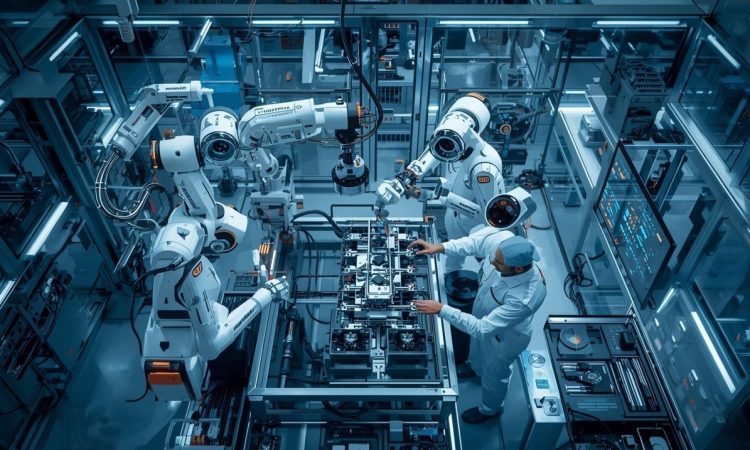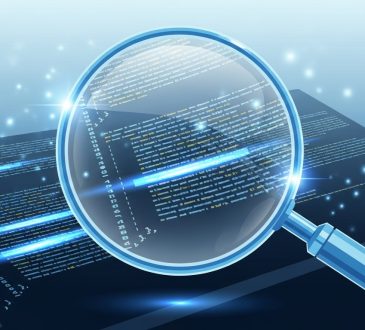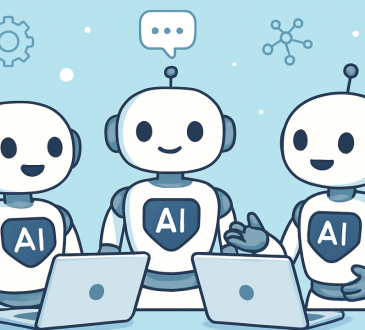How AI Is Transforming Businesses: Industry News April 2025 Insights

Artificial Intelligence (AI) is no longer a futuristic concept—it’s now the foundation of modern business transformation. By April 2025, AI has firmly established itself as the driving force behind innovation, efficiency, and competitiveness across industries.
From finance and healthcare to retail, manufacturing, and even creative fields, AI’s influence is reshaping business models, redefining customer experiences, and setting new standards for productivity.
As organizations embrace automation, predictive analytics, and generative AI, the pace of digital transformation has accelerated beyond even the most optimistic forecasts. Below are the major developments and insights from April 2025 that highlight how AI is revolutionizing the business landscape.
1. Generative AI Goes Mainstream Across Industries
Generative AI tools have evolved from experimental prototypes to essential business assets. In April 2025, numerous companies announced large-scale deployments of AI systems designed to create content, streamline operations, and assist in design and research.
In marketing and advertising, brands now use AI-driven creative assistants to produce campaign visuals, write personalized ad copy, and analyze consumer responses in real time. Analysts report that over 70% of digital marketing teams rely on AI to automate at least one part of their creative or analytical processes.
Meanwhile, in product design, AI systems can generate hundreds of concept variations within minutes. Automotive and consumer electronics industries have been especially quick to adopt this, drastically cutting the time between concept and market launch.
2. AI-Driven Customer Experience: From Personalization to Prediction
In 2025, customer experience (CX) has taken center stage—and AI is leading the charge. Machine learning models now analyze customer behavior, preferences, and purchase patterns to deliver hyper-personalized interactions at scale.
Retailers use AI not just to recommend products, but to predict customer needs before they’re even expressed. AI-powered chatbots have also evolved beyond simple support—they now understand context, tone, and emotion, providing empathetic, human-like service.
In April 2025, major telecom and e-commerce companies launched next-generation AI contact centers. By combining natural language processing (NLP) with sentiment analysis, these systems provide real-time solutions, boost satisfaction rates, and reduce operational costs.
3. The Rise of AI-Enhanced Workforces
AI is no longer just a tool—it’s becoming a collaborative partner in the workplace. Businesses are now adopting hybrid intelligence systems that merge human creativity with AI’s analytical precision.
In finance, AI assistants help analysts identify market trends, detect anomalies, and draft reports. In manufacturing, predictive maintenance powered by AI prevents costly breakdowns and improves safety.
Experts predict that by the end of 2025, nearly 60% of large organizations will deploy AI-driven workflow assistants to improve productivity and accelerate decision-making.
4. Small and Medium Enterprises (SMEs) Embrace AI
AI is no longer the privilege of tech giants. April 2025 marks a turning point as small and medium-sized enterprises (SMEs) increasingly adopt affordable, cloud-based AI tools to compete globally.
From automated accounting and marketing optimization to AI-as-a-Service (AIaaS) platforms, SMEs can now access sophisticated tools without large budgets or technical expertise. Generative AI tools specifically tailored for small businesses help produce marketing materials, product descriptions, and engagement campaigns instantly.
This democratization of AI is reshaping competition—allowing smaller players to innovate faster and deliver personalized customer experiences once reserved for big corporations.
5. AI in Finance: Smarter Decisions and Safer Transactions
The finance sector continues to lead in AI adoption. In April 2025, financial institutions rolled out advanced AI-driven applications that improve transparency, security, and decision-making.
Banks and fintech firms now detect fraud in real time through algorithms that identify suspicious transaction patterns. AI-based credit scoring systems also consider spending habits and behavioral data, enabling fairer and faster lending decisions.
Wealth management companies are using AI “robo-advisors” that analyze market trends, assess risk, and provide personalized investment recommendations. The integration of AI with blockchain technology is also gaining momentum, creating more secure and transparent financial systems.
6. AI and Sustainability: Smart Business for a Greener Future
Sustainability is no longer just an ethical choice—it’s a business imperative. In 2025, AI plays a vital role in helping companies meet environmental goals while cutting operational costs.
Manufacturers are using AI-driven analytics to monitor energy use, predict maintenance needs, and reduce waste. In logistics, AI-optimized supply chains are helping companies lower emissions by selecting more efficient transport routes and suppliers.
In agriculture, smart AI systems and drones track soil health, optimize irrigation, and predict crop yields—boosting productivity while conserving resources.
Even tech giants are leveraging AI to make energy-efficient data centers, using intelligent systems that dynamically manage cooling and power consumption to reduce carbon footprints.
7. Ethical AI and Regulation: Building Trust in the Digital Era
As AI adoption grows, so does the focus on ethics and regulation. In April 2025, several governments introduced new AI transparency and fairness frameworks to ensure responsible use.
The European Union enacted laws requiring businesses to disclose when customers interact with AI. Meanwhile, India and Singapore launched initiatives promoting ethical and inclusive AI development.
Many companies are proactively creating AI ethics committees and deploying explainable AI (XAI) models to ensure transparency and fairness. This isn’t just about compliance—it’s about building trust, the new currency of business success.
8. The Road Ahead: AI as a Catalyst for Innovation
The developments from April 2025 prove one thing—AI is not just a technology; it’s a catalyst for innovation.
From boosting efficiency and improving customer engagement to supporting sustainability and ethical practices, AI’s influence is expanding rapidly. As it integrates with quantum computing, robotics, and the Internet of Things (IoT), businesses can expect even more transformative breakthroughs ahead.
The companies that will thrive are those that view AI as an enabler of human progress—not a replacement. By fostering collaboration between human insight and machine intelligence, businesses can reach levels of creativity and performance once thought impossible.
Conclusion
April 2025 marks a defining moment in the evolution of artificial intelligence in business. AI is not merely transforming industries—it’s reshaping the future of innovation, competition, and success.
Organizations that adopt AI with foresight and responsibility are already achieving remarkable gains in creativity, efficiency, and customer trust. One thing is clear: AI isn’t just shaping the future of business—it is the future of business.




